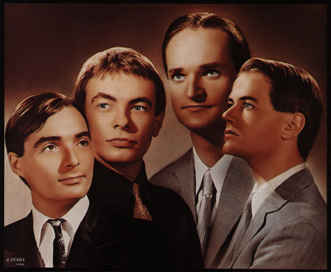 "Of all forms of literature that of the prose poem was Des Esseintes' chosen favorite. Handled by an alchemist of genius, it should, according to him, store up in its small compass, like an extract of meat, so to say, the essence of the novel, while suppressing its long, tedious analytical passages and superfluous descriptions. Again and again Des Esseintes had pondered the distracting problem, how to write a novel concentrated in a few sentences, but which should yet contain the cohobated juice of the hundreds of pages always taken up in describing the setting, sketching the characters, gathering together the necessary incidental observations and minor details. In that case, so inevitable and unalterable would be the words selected that they must take the place of all others; in so ingenious and masterly a fashion would each adjective be chosen that it could not with any justice be robbed of its right to be there, and would open up such wide perspectives as would set the reader dreaming for weeks together of its meaning, at once precise and manifold, and enable him to know the present, reconstruct the past, divine the future of the spiritual history of the characters, all revealed by the flash-light of this single epithet."
"Of all forms of literature that of the prose poem was Des Esseintes' chosen favorite. Handled by an alchemist of genius, it should, according to him, store up in its small compass, like an extract of meat, so to say, the essence of the novel, while suppressing its long, tedious analytical passages and superfluous descriptions. Again and again Des Esseintes had pondered the distracting problem, how to write a novel concentrated in a few sentences, but which should yet contain the cohobated juice of the hundreds of pages always taken up in describing the setting, sketching the characters, gathering together the necessary incidental observations and minor details. In that case, so inevitable and unalterable would be the words selected that they must take the place of all others; in so ingenious and masterly a fashion would each adjective be chosen that it could not with any justice be robbed of its right to be there, and would open up such wide perspectives as would set the reader dreaming for weeks together of its meaning, at once precise and manifold, and enable him to know the present, reconstruct the past, divine the future of the spiritual history of the characters, all revealed by the flash-light of this single epithet."Cohobate \Co`ho*bate\, v. t. [imp. & p. p. Cohobated; p. pr. &
vb. n. Cohobating.] [LL. cohobare; prob. of Arabic origin:
cf. F. cohober.] (Anc. Chem.)
To repeat the distillation of, pouring the liquor back upon
the matter remaining in the vessel. --Arbuthnot.
[1913 Webster]

No comments:
Post a Comment